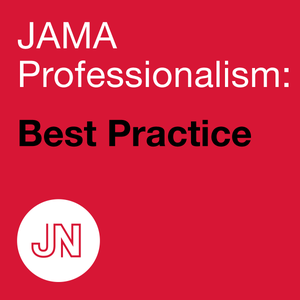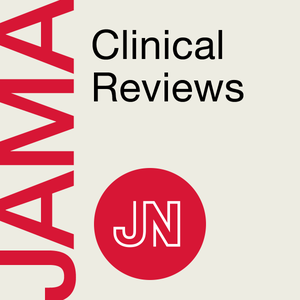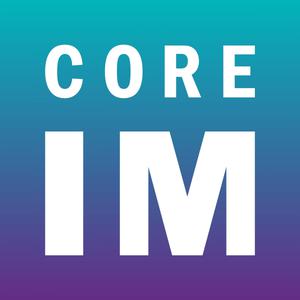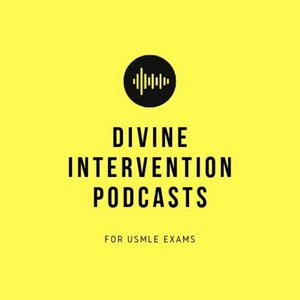
JAMA Professionalism: Best Practice
JAMA Network
Discussions of how clinicians can best address challenging clinical situations and adverse events in their medical practice
- 28 minutes 48 secondsWhat to Do When You Suspect a Colleague Is Performing Inappropriate Procedures
A young clinician notices that every patient she refers to one cardiologist gets cardiac catheterizations--whether they need them or not. How should she deal with this? The podcast features Shiphra Ginsburg, MD, MEd, PhD, from Mount Sinai Hospital and University of Toronto Medicine.
Article discussed in this episode: Is There a Conflict of Interest?
2 May 2017, 3:20 pm - 31 minutes 5 secondsIs It Time to Retire?
Making the decision about when to retire is never easy. Cognitive and technical skills may decline with age, but judgment and the ability to interact with patients improve as physicians gain experience. Physicians also tend to pay little attention to financial concerns and also find themselves unprepared for retirement when the get older. This article addresses concerns regarding self-assessment of clinical skills as well as facilitating action when a clinician observes a colleague whose clinical skills are faltering.
The podcast features Barbara Schneidman, MD, MPH, from the American Board of Psychiatry and Neurology; Bob Hyland, MD, from St Michael's Hospital in Toronto, and Christopher Muth, MD, Fishbein Fellow at JAMA.
Learning Objectives: To understand the appropriate longevity of a physician’s career and how they should approach assessing their clinical skills as they age.
Article discussed in this episode: Is It Time to Retire?
18 April 2017, 3:00 pm - 21 minutes 17 secondsTreating Resource Overutilization Like a Complication
Health care spending in the United States is excessive, yet when resources are wasted there are few ramifications. This JAMA Professionalism article proposes that excessive resource utilization be approached with the same seriousness as are treatment complications. The podcast features Andrew R. Lai, MD, MPH, from UCSF Medical Center.
Article discussed in this episode: Is Excessive Resource Utilization an Adverse Event?
28 February 2017, 4:00 pm - 30 minutes 41 secondsWhat Should Students or Residents Do When Abused by Faculty
Approximately one-third of all medical school graduates report having been abused as students. Medical student and resident abuse has long been considered unacceptable behavior but still persists in the teaching environment. In this podcast we discuss how students and residents might respond to these events. We interview Geoffrey Young, MD, from the Association of American Medical Colleges and Thomas J. Nasca, MD, from the Accreditation Council for Graduate Medical Education, who discuss how they expect medical schools to respond to abusive behaviors and what resources are available to students and residents who have been abused to report those experiences without fearing retribution.
Article discussed in this episode:
6 December 2016, 4:00 pm - 27 minutes 29 secondsProfessional Boundaries: What to Do When Clinicians Ask Other Clinicians to Prescribe Medications for Them
In this episode of JAMA Professionalism: Best Practice, Edward H. Livingston, MD looks at the case of a physician requesting prescription medication from a colleague to examine professional boundaries between physicians and options for managing those boundaries. Shiphra Ginsburg, MD and Wendy Levinson, MD, authors of the related article, join Dr Livingston to discuss the best options for handling this challenging situation. Arthur S. Hengerer, MD, chair of the Federation of State Medical Boards discusses the legal and licensure ramifications of physicians prescribing for other clinicians and Kate E. Engelhardt, MD, and D. Brock Hewitt, MD, MPH, practicing physicians, relate their experience with other clinicians asking them to prescribe medications.
25 October 2016, 3:00 pm - 21 minutes 29 secondsDisclosure of Medical Error
Introducing a new series of JAMA articles on professionalism, discussed from the perspective of how clinicians should address challenging clinical situations and adverse events in their medical practice. In the first episode of the accompanying podcast, JAMA Professionalism: Best Practice, we interview Wendy Levinson, MD, and Jensen Yeung, MD, authors of
16 August 2016, 3:00 pm - More Episodes? Get the App
Your feedback is valuable to us. Should you encounter any bugs, glitches, lack of functionality or other problems, please email us on [email protected] or join Moon.FM Telegram Group where you can talk directly to the dev team who are happy to answer any queries.
 JAMA Clinical Reviews
JAMA Clinical Reviews
 Core IM | Internal Medicine Podcast
Core IM | Internal Medicine Podcast
 » Divine Intervention Podcasts
» Divine Intervention Podcasts